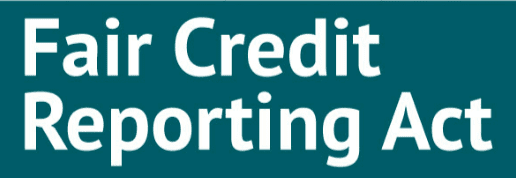
Laws Relating to Requesting and Using Background Reports
When conducting background checks on job applicants or employees, employers must comply with several federal laws and regulations. These include the Fair Credit Reporting Act (FCRA), which sets guidelines for how credit reporting agencies and employers can use credit and background information, and the Equal Employment Opportunity Commission (EEOC), which prohibits discrimination on the basis of race, color, national origin, sex, and religion.
Some of the key rules that must be followed when running background checks include:
- Obtaining written consent from the job applicant or employee before conducting a background check.
- Providing a pre-adverse action notice to the job applicant or employee before taking adverse action based on information obtained in a background check.
- Providing an adverse action notice to the job applicant or employee if adverse action is taken based on information obtained in a background check.
- Ensuring that the background check reports received are accurate and up-to-date and follow up on any disputes.
- Showing that the use of background checks is job-related and consistent with business necessity.
- Giving job applicants and employees an opportunity to explain or correct any negative information revealed in a background check.
- Being mindful of your obligations under Title VII of the Civil Rights Act of 1964, which prohibits discrimination on the basis of race, color, national origin, sex, and religion and ensure that your background check policies and practices do not have a disproportionately negative impact on protected groups.

FCRA
When conducting background checks on job applicants and employees, it's important for employers to comply with the Fair Credit Reporting Act (FCRA). The FCRA sets guidelines for how credit reporting agencies and employers can use credit and background information.
One of the key requirements of the FCRA is obtaining written consent from the job applicant or employee before conducting a background check. This consent must be in writing and must inform the individual that a background check may be conducted, as well as their rights under the FCRA.
Another requirement is that employers must provide a pre-adverse action notice to the job applicant or employee before taking adverse action based on information obtained in a background check. This notice must include a copy of the background check report and a summary of the individual's rights under the FCRA. The individual must be given a reasonable amount of time to dispute the accuracy of the information before any adverse action is taken.
Employers must also provide an adverse action notice to the job applicant or employee if adverse action is taken based on information obtained in a background check. The notice must include the name, address, and phone number of the credit reporting agency that provided the report, as well as a statement that the credit reporting agency did not make the adverse decision and cannot provide the reasons for it.
It's also important for employers to ensure that the background check reports they receive are accurate and up-to-date. The FCRA requires that credit reporting agencies take reasonable steps to ensure the accuracy of the information they provide, but employers also have a responsibility to verify the information and follow up on any disputes.
In summary, complying with the FCRA is crucial when conducting background checks on job applicants and employees. Employers must obtain written consent, provide pre-adverse and adverse action notices, and ensure that the background check reports they receive are accurate and up-to-date. By following these guidelines, employers can ensure they are using background information in a legal and fair way.
When conducting background checks on job applicants and employees, it's important for employers to comply with the Fair Credit Reporting Act (FCRA). The FCRA sets guidelines for how credit reporting agencies and employers can use credit and background information.
One of the key requirements of the FCRA is obtaining written consent from the job applicant or employee before conducting a background check. This consent must be in writing and must inform the individual that a background check may be conducted, as well as their rights under the FCRA.
Another requirement is that employers must provide a pre-adverse action notice to the job applicant or employee before taking adverse action based on information obtained in a background check. This notice must include a copy of the background check report and a summary of the individual's rights under the FCRA. The individual must be given a reasonable amount of time to dispute the accuracy of the information before any adverse action is taken.
Employers must also provide an adverse action notice to the job applicant or employee if adverse action is taken based on information obtained in a background check. The notice must include the name, address, and phone number of the credit reporting agency that provided the report, as well as a statement that the credit reporting agency did not make the adverse decision and cannot provide the reasons for it.
It's also important for employers to ensure that the background check reports they receive are accurate and up-to-date. The FCRA requires that credit reporting agencies take reasonable steps to ensure the accuracy of the information they provide, but employers also have a responsibility to verify the information and follow up on any disputes.
In summary, complying with the FCRA is crucial when conducting background checks on job applicants and employees. Employers must obtain written consent, provide pre-adverse and adverse action notices, and ensure that the background check reports they receive are accurate and up-to-date. By following these guidelines, employers can ensure they are using background information in a legal and fair way.
EEOC
The Equal Employment Opportunity Commission (EEOC) has recently issued a ruling on the use of background checks in the hiring process. The ruling states that employers must demonstrate that the use of background checks is "job related and consistent with business necessity."
This means that employers cannot use background checks as a blanket policy for all job applicants, but must instead show that the specific information being checked is directly relevant to the job in question. For example, a company that hires truck drivers would likely need to conduct background checks for driving violations, while a company that hires office workers would not.
The EEOC also clarified that employers must give job applicants and employees an opportunity to explain or correct any negative information revealed in a background check before taking adverse action based on that information. This is to ensure that individuals are not unfairly penalized for mistakes or inaccuracies in their background.
Additionally, the EEOC emphasized that employers must be mindful of their obligations under Title VII of the Civil Rights Act of 1964, which prohibits discrimination on the basis of race, color, national origin, sex, and religion. Employers must therefore ensure that their background check policies and practices do not have a disproportionately negative impact on protected groups.
In summary, the EEOC's ruling on business necessity and position-specific background checks serves as a reminder for employers to be mindful of their legal obligations when using background checks in the hiring process. Employers must demonstrate that the use of background checks is job-related and consistent with business necessity, and should give job applicants and employees an opportunity to explain or correct any negative information revealed in a background check.

